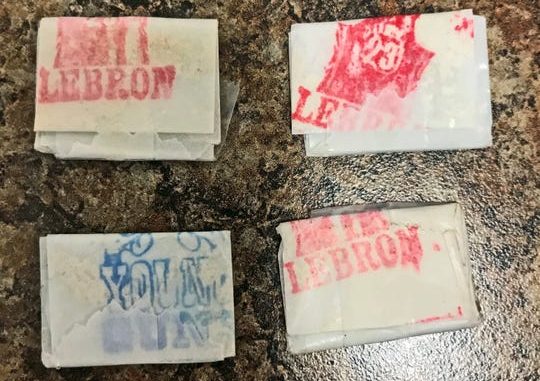
The town of Hunter is in the midst of an opioid epidemic. Over the weekend of Oct. 28 and 29, there was an unfortunate and unusual spike of overdoses — this time, fentanyl-laced heroin. The Ulster County District Attorney’s Office described the recent 12 overdoses as “unprecedented.”
The DA’s office provided a picture of two laced heroin packages. One reads “Lebron,” containing a red graphic of a basketball jersey. The other package contains a blue graphic displaying two hand guns with words of the same color reading “Young Guns.” Both of these types of packages were evidenced by the county to contain fentanyl, according to the DA’s office.
At the root of any drug issue in society is addiction and the various socio-economic and emotional factors that support it.
Fourth-year public relations major Emily Harter, an orientation leader and peer mentor for SUNY New Paltz, said “I am HERE and I am ALWAYS available to you,” in a recent Instagram post addressed to her students.
“I think the school does a really good job of creating programming for students that they can go to instead of participating in potentially harmful activities,” Harter said.
It is important for students to know how to address an overdose should they encounter one. “The SUNY Office of University Life worked with the New York Department of Health, Office of Substances and Alcohol Abuse Services and other agencies to identify materials that would be helpful to campuses,” according to the SUNY website.
One of these materials is information on Naloxone trainings which are widespread and abundantly available throughout the state. “Naloxone, the drug that reverses overdoses from opioids such as heroin and many prescribed pain relief medications, is now available in more than 2,600 pharmacies throughout New York State. Individuals who are themselves at risk for an overdose or their family members or friends may acquire Naloxone in these pharmacies without bringing in a prescription,” according to the New York State Department of health.
The district attorney’s office encourages those that are struggling with addiction to call the Ulster County Mental Health/Substance Disorder hotline at 800-662-4357.
